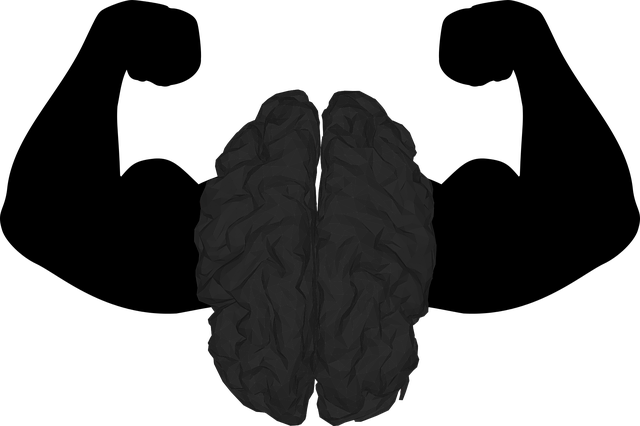Burnout among healthcare providers, driven by factors like heavy workloads and long hours, negatively impacts both well-being and patient care. Englewood Therapy for Therapists-Clinicians offers targeted resources, including Mind Over Matter principles, Healthcare Provider Cultural Competency Training, and Mental Health Policy Analysis, to combat this issue. Their evidence-based strategies, such as mindfulness meditation and compassion cultivation, enhance stress management and emotional regulation. By prioritizing holistic development, Englewood Therapy equips therapists with tools to prevent burnout, improve patient care, and foster personal growth.
Healthcare provider burnout is a growing concern, impacting quality of care and patient outcomes. This article explores strategies to prevent burnout among healthcare professionals, focusing on evidence-based approaches tailored to therapists and clinicians. We delve into understanding burnout, identifying its signs and root causes, and present a comprehensive guide to resilience-building techniques. Specifically, we highlight the role of Englewood Therapy for Therapists-Clinicians in cultivating well-being and fostering sustainable careers in healthcare.
- Understanding Burnout in Healthcare Providers: Identifying the Signs and Causes
- Evidence-Based Strategies for Burnout Prevention: A Comprehensive Approach
- Englewood Therapy for Therapists-Clinicians: Cultivating Resilience and Well-being
Understanding Burnout in Healthcare Providers: Identifying the Signs and Causes

Burnout among healthcare providers is a growing concern, impacting not only their well-being but also patient care. It’s essential to recognize that burnout isn’t simply feeling tired; it’s a complex state stemming from chronic stress and emotional exhaustion. Englewood Therapy for Therapists-Clinicians offers valuable resources in navigating this challenge.
Signs of burnout can include heightened cynicism towards patients, decreased job satisfaction, and reduced efficacy despite consistent effort. Causes are multifaceted, encompassing factors like heavy workloads, long hours, lack of control over work processes, insufficient rewards, and a disconnect between personal values and professional roles. Incorporating Mind Over Matter Principles and engaging in Healthcare Provider Cultural Competency Training can mitigate these issues. Additionally, advocacy for Mental Health Policy Analysis ensures that systems support the mental well-being of healthcare workers.
Evidence-Based Strategies for Burnout Prevention: A Comprehensive Approach

In the relentless pursuit of excellence in healthcare delivery, addressing burnout among providers is paramount for both individual well-being and patient outcomes. Evidence-based strategies offer a comprehensive approach to mitigate this growing concern. One such strategy gaining traction is mindfulness meditation, which has shown promise in reducing stress and enhancing emotional regulation among therapists and clinicians. Englewood Therapy, for instance, champions therapeutic techniques that integrate mindfulness practices into the daily routines of healthcare professionals.
Complementing mindfulness meditation are compassion cultivation practices, designed to foster a deeper sense of connection and empathy between providers and their patients. By cultivating compassionate responses, healthcare workers can better manage challenging interactions, thereby decreasing burnout risk. Moreover, applying mind over matter principles equips therapists with cognitive tools to reframe stress as manageable, promoting resilience in the face of demanding work environments. These holistic interventions not only benefit individual mental health but also contribute to a more nurturing and sustainable healthcare system.
Englewood Therapy for Therapists-Clinicians: Cultivating Resilience and Well-being

Englewood Therapy offers a specialized approach to address the unique challenges faced by therapists and clinicians. This form of therapy is designed to cultivate resilience and promote well-being, which are essential for professionals in the mental health field. Through tailored interventions, individuals can learn effective strategies to manage stress, enhance self-care practices, and engage in emotional healing processes.
The therapy focuses on building resilience by equipping practitioners with tools to navigate difficult cases and high-pressure environments. By prioritizing self-care routine development, therapists can maintain better mental health, prevent burnout, and ultimately provide more exceptional patient care. This holistic approach ensures that clinicians not only thrive professionally but also experience personal growth and satisfaction in their careers.
Healthcare provider burnout is a growing concern, but with the right strategies, it can be mitigated. By understanding the signs and causes of burnout, healthcare workers can take proactive measures such as adopting evidence-based practices. Specifically, Englewood Therapy for Therapists-Clinicians offers a comprehensive approach to cultivating resilience and well-being. These strategies not only enhance job satisfaction but also improve patient care outcomes. Remember that preventing burnout is essential for a healthy and sustainable healthcare ecosystem.












